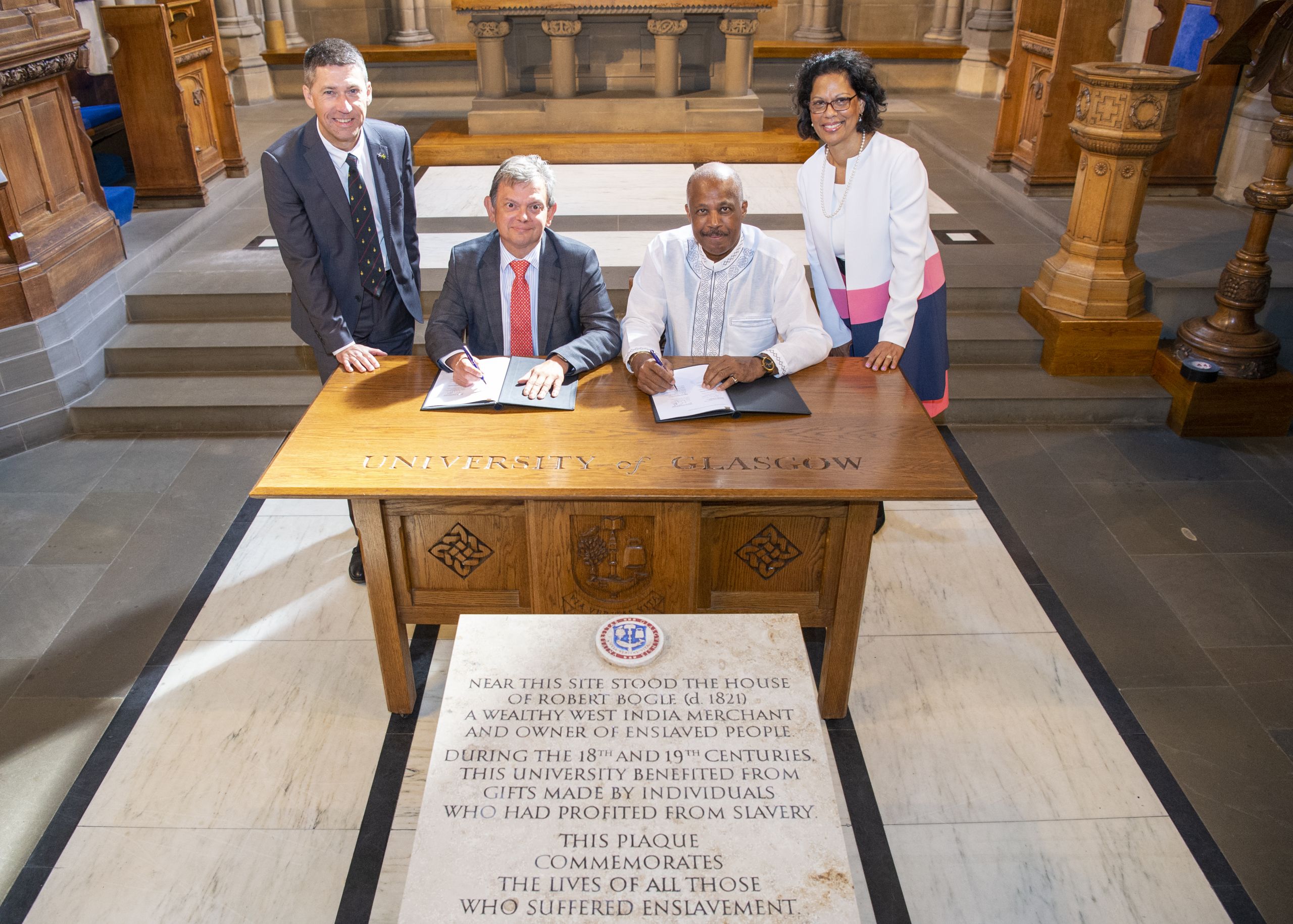Shaping the Future by Making
Reparatory Justice Real

On August 23, 2019 — UNESCO’s International Day of Remembrance for the Slave Trade— the University of Glasgow in Scotland publicly acknowledged its links to slavery.
It has committed to raising and spending $26 million dollars over two decades on projects that will benefit the people of the Caribbean and other regions affected by historical slavery.
Part of its reparative justice program includes a new partnership with the University of the West Indies (UWI) to establish a collaborative Centre for Development Research.
In an interview during his visit to sign the historic agreement, UWI’s vice chancellor, Sir Hilary Beckles, said, “Glasgow has moved into a space above and beyond all of those conversations that we have been having at the national university level, and they have taken that philosophical step. We are not going to research and run, we are going to research, and then we are going to stand up and repair.”
Areas under discussion for the partnership include interdisciplinary work on diabetes, which is prevalent in the Caribbean islands, partly for reasons rooted in the past; the development of an online museum of slavery, and work on the ecological impact of the plantation system. To fund this, the university intends to access sources such as the United Kingdom government’s Global Challenges Research Fund, which supports cutting-edge research on the challenges facing countries in the Global South.
Recognizing the Past to Shape the Future
Glasgow took an abolitionist stance in the 18th and 19th centuries and never owned slaves, yet the university did accept gifts and bequests from people who profited from the institution. After an exhaustive study of its archives, researchers found that the figure could have been a high as $245 million in today’s values.
The result of a two-year intensive research project, the Glasgow study combines economic history with biographies of real people who suffered enslavement, and is now publicly available in the interest of transparency and civic education.
The historic day also included a specially composed work by Scotland’s national poet, Jackie Kay, about reparatory justice.
A Legacy of World-Changing Opportunities
The University of Glasgow, with a history of nearly six centuries, has always been proud of providing people with access to education regardless of background or circumstance.
James McCune Smith was the first African American to graduate from the University of Glasgow with a medical degree — an M.D., in 1837. A former slave, he returned to New York where he was the first African American to run a pharmacy.
The university is opening a new learning and teaching hub on campus in his name, with associated scholarships to advance opportunities for all.
Sir Anton Muscatelli, principal and vice chancellor of the university, said:
"James McCune Smith was truly a pioneer, not only becoming the first African American to gain a medical degree, but also one of the leading intellectuals of his time. The University of Glasgow is proud of our association with his legacy, and it is fitting that we honour it in the naming of this building. The new James McCune Smith Learning Hub will revolutionize how we deliver learning and teaching support and provide a world-class facility for generations of future students from around the world. This is also consistent with actions agreed in our recent report, to provide reparative justice due to the university's historical links with racial slavery, and emphasises our commitment to that program."
What's Next?
The move to make reparations has been controversial. For some, activities are not going far enough, and for others the actions fall short of what they consider to be appropriate, just, and equitable. Consensus is elusive, but the University of Glasgow is willing, and eager, to continue the debate about its report and plan of action.


